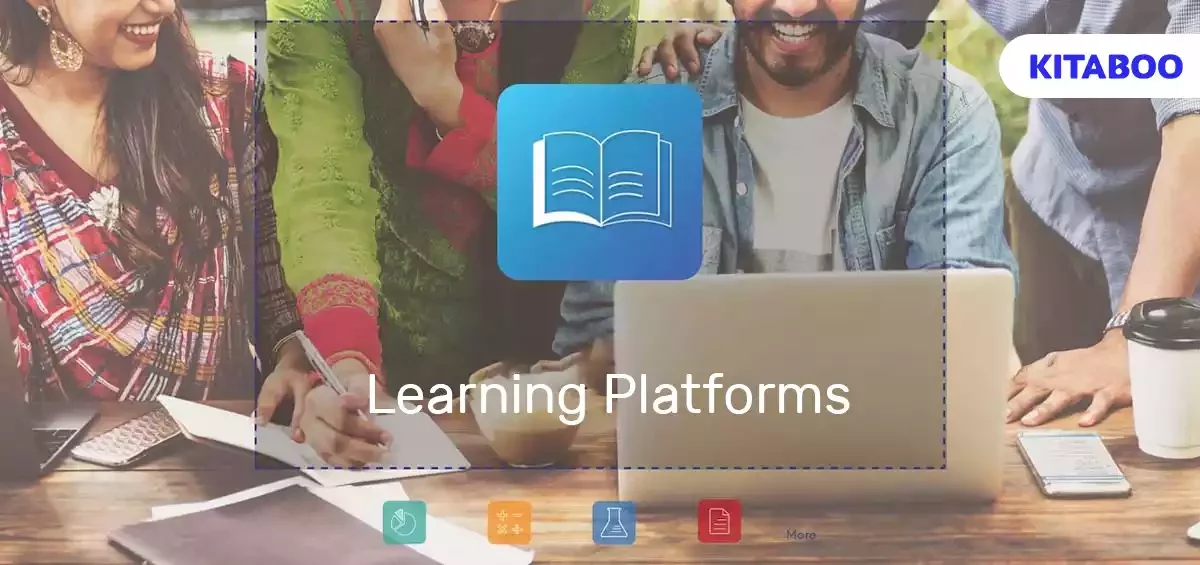White labeling is basically a simple methodology where an educator or educational institution purchases or uses digital education solutions developed by tech partners but rebrands them under their own name.
The biggest benefit that white labeling provides to the industry of education is making cutting-edge technological learning tools available to students through a brand that is accessible to them. The practice is in widespread use today through educational platforms like KITABOO to bring advanced technologies into classrooms and pass their benefits to the students who come to learn.
Let’s get into the nitty-gritty of white labeling and how these customizable learning platforms can make a difference in education.
Table of Contents:
I. Benefits of White Label Solutions for Businesses
- Improves Learning Value
- Reflects the Brand
- Preserve Vendor Ties
- Personalized Learning
- Flexibility in Learning
II. Customization Options in White Label Platforms
IV. Success Stories
V. Future Directions in White Label Learning Technology
VI. KITABOO: Bringing The Power of White-Labeling to Education
Benefits of White Label Solutions for Businesses
Did you know that fostering white-label product partnerships can potentially boost brand visibility and product sales by 20%?
In addition to making advanced technologies more widely accessible for students, white labeling provides multifaceted advantages to both educators and students.
In the field of education, white labeling is more than the plain branding of educational technologies and content. Listed below are five key advantages:
1. Improves Learning Value
It is extremely important today to deliver excellent learning experiences to students. Making technologies available to them counts towards enhancing that experience, but seeing random vendor logos and watermarks can take away from that experience.
With white labeling, learners are able to associate the learning material with your reputed institute.
2. Reflects the Brand
Educational institutions also experience some level of competition from each other in order to retain students and educators with their names. Creating branded learning materials helps them maintain quality benchmarks, setting them apart in the marketplace that remains flooded with random educational resources.
White-labeled products improve your branding and reputation.
3. Preserve Vendor Ties
Digital education solutions like software and apps often contain labels of digital partners or technology developers. In situations where educators wish to preserve their ties with specific vendors for privacy or IP purposes, it is best to consider white labeling the resources that are outsourced or created in partnerships. This will allow the institutions to improve their own brand visibility and also prevent vendor names from appearing in the products.
4. Personalized Learning
Personalization of white-labeled products opens doors to enhancing the learner experience for the students. By adjusting the colors, UI, themes, fonts, etc., you can deliver to the students a familiar learning experience that is in line with your institute’s existing resources. It helps create a sense of community among learners.
5. Flexibility in Learning
Customization Options in White Label Platforms
If you have decided to incorporate white labeling in your digital solution for education, there are several customization options you can get out of the box. Listed below are nine key aspects where you can apply your branding, styles, themes, and preferences to the customizable learning platform:
- Adjustment of themes and colors: Each brand has its own themes, colors, and designs set by the designers. You can customize these aspects in white labeling.
- Domain names: You can append your custom domain names across the platform. Some customizations may also allow you to append URLs that help you navigate straight to your website from the product/learning module.
- Build: Whether it be new menus, pages, or certificates, white labeling allows you to build the components of the learning platform that you need. This enables you to provide all the desired or user-requested features on the platform, helping to make it more user-centric.
- Email: The email templates that you send to your learners, educators, and their parents can be customized. For example, you can append your brand identity in the form of a logo, ethos/vision/mission message, etc., with the emails you send.
- Branding: You can customize the entire brand package on the white-labeled learning platform, like logos, favicons, watermarks, and more. The branding can be achieved in any form you require, like footer logos, dedicated About Us pages, brand audio, etc.
- Menus: You can customize the menu items to suit your curriculum and platform usage patterns. For example, enabling automated, dedicated menu buttons for quick access to popular modules based on user preferences.
All these customization options make white labeling a process that better fits the learning platform for the student’s needs. It makes the entire learning experience that much more relevant for the teachers to deliver and for the students to receive.
Future Directions in White Label Learning Technology
White labeling has immense capabilities to transform the learning experience and process for all students alike. The technology is experiencing constant evolution to address the dynamic needs of the education industry. Some of the key advancements that the future of white labeling holds are:
- Automation of workflows: White labeling is constantly incorporating technological advancements such as AI and NLP to help automate and smarten its workflows for the end user.
- Democratization: To address the steadily growing competition, white labeling would soon involve prompt information display that can be updated in a tap by all stakeholders involved.
White label SEO: To help educators navigate the digital landscape, white labeling would soon incorporate SEO practices into its modules.
Guide:
How to Build an eBook Store
KITABOO: Bringing The Power of White-Labeling to Education
Customizable learning platforms provide high functionality to the learners, including the capability to customize their own learning experiences. Educators recognize the importance of white labeling better and more advanced educational technologies to make them available to their students.
KITABOO empowers institutions and educators alike to white-label high-performing digital education solutions like eBook readers. The KITABOO online learning platform itself is a holistic solution for the complete educational needs of teachers and students. Its cutting-edge features include content publishing and enrichment, advanced analytics, B2B2C distribution models, user management, and a lot more.
To understand how you can leverage KITABOO’s efficient digital solutions and white labeling, please write to us at kitaboo@hurix.com.
Discover How An Ebook Conversion, Publishing & Distribution Platform Can Help You
Kitaboo is a cloud-based content platform to create-publish & securely distribute interactive mobile-ready ebooks.
You May Also Like








